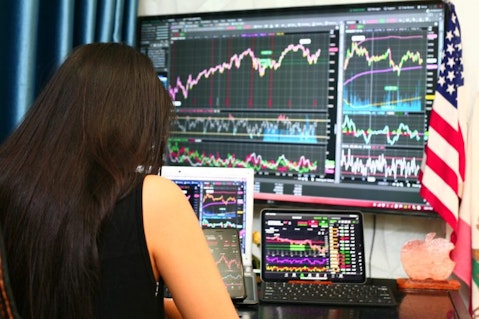The forex market is the largest and most liquid financial market in the world, with over $7.5 trillion traded daily. Market liquidity means the ability to buy and sell assets quickly without substantially impacting the asset’s price. High liquidity is essential for stable markets and thriving international trade and investments.

This article explores the relationship between forex market liquidity, economic stability, and trading opportunities.
Liquidity’s Impact on Market Stability
Liquidity depends on the number of buyers and sellers actively trading a currency pair. Major pairs like EUR/USD have high liquidity due to large trading volumes. Exotic pairs have lower liquidity and wider spreads due to fewer market participants. Liquidity when forex trading Philippines fluctuates based on factors like trading session, news events, and holidays. Lower liquidity tends to increase volatility as fewer trades cause bigger price swings.
Forex market liquidity promotes international economic stability in several ways.
It allows firms to easily exchange currencies to facilitate cross-border transactions. Central banks also rely on liquid forex markets to implement monetary policy and currency interventions to stabilize exchange rates. The high liquidity provided by major banks and financial institutions contributes to efficient capital flows and steadier currency valuations worldwide.
However, extremely high volatility can still occur during major news or uncertainty, temporarily reducing liquidity. For example, the Swiss National Bank’s 2015 decision to abandon the franc’s euro peg sent the EUR/CHF exchange rate plummeting over 40% in minutes before recovering shortly after.
In more recent times, the outbreak of the Russia – Ukraine war impacted the global financial markets in a big way and central banks were forced to step in to prevent exchange rates from devaluing. Such events highlight the sensitivity of forex markets to major economic changes or shocks.
Liquidity’s Impact on Trading Opportunities
For individual traders, periods of lower liquidity present unique trading opportunities. With wider spreads, larger bids and offers enter the order book. This allows traders to potentially secure favorable entries and exits. However, lower liquidity also means stronger slippage from ideal entry and exit levels. This means you must adjust strategies during volatile, low liquidity events to account for stronger price swings or face making losses on your trades.
Some strategies traders can utilize include:
– Focusing on liquid major pairs like GBP/USD and avoiding illiquid exotic pairs like CHF/SGD. Higher liquidity reduces slippage and volatility risk.
– Using wider stops to accommodate increased volatility and prevent premature stop-outs.
– Reducing position sizes to cut losses in choppy markets and improving chances of survival.
– Waiting for volatility to subside and liquidity to return before placing trades. Patience prevents you from entering at inopportune times.
Overall, forex market liquidity forms the foundation for global economic stability while providing trading opportunities during volatile periods. Monitoring liquidity conditions can help institutions and traders minimize risks, especially surrounding major news events. As the world’s largest trading arena, maintaining fluid forex markets will be crucial for international growth and development in the decades ahead.





